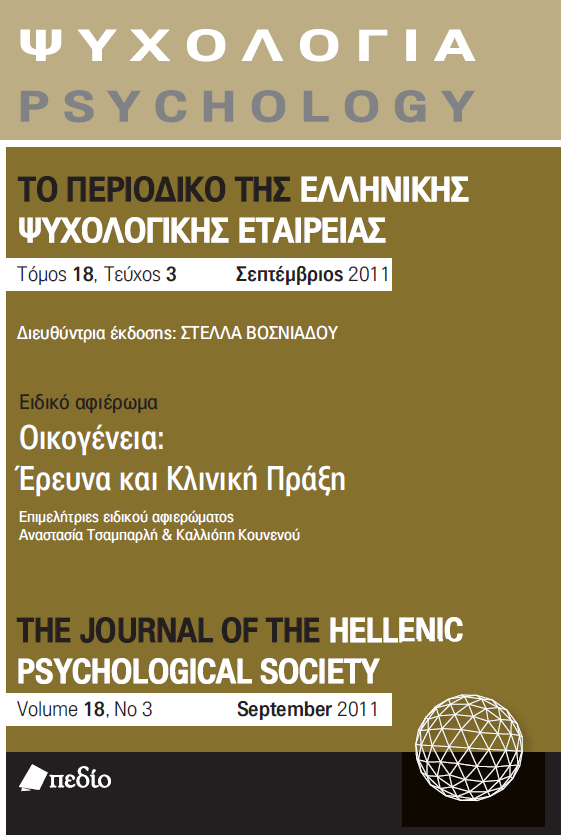Families with mentally retarded members: Types of perceived parents' needs

Abstract
The purpose of this study was to describe the perceived needs of family with children with mental retardation and to analyze the relationship between the type and number of needs to participants’ demographic characteristics. Sixty seven parents participated in the study and answered the questionnaire in the form of structured interviews. Results showed that parents expressed more needs about information, social support and psychosocial services. We found that elder parents reported more needs than younger parents. Parents with younger children reported fewer needs for social support and services compared to those with older children. Τhe findings are discussed in terms of their implications for the improvement of the existing and planning for the development of better family support frameworks.
Article Details
- How to Cite
-
Παξινός Ι., & Ξανθοπούλου Ε. (2020). Families with mentally retarded members: Types of perceived parents’ needs. Psychology: The Journal of the Hellenic Psychological Society, 18(3), 317–332. https://doi.org/10.12681/psy_hps.23725
- Issue
- Vol. 18 No. 3 (2011)
- Section
- SPECIAL SECTION

This work is licensed under a Creative Commons Attribution-ShareAlike 4.0 International License.
The journal PSYCHOLOGY adopts a Platinum open-access policy. Submission, processing or publication costs are waived by the Hellenic Psychological Society. Papers published in the journal PSYCHOLOGY are licensed under a 'Creative Commons Attribution-ShareAlike 4.0 International' licence. The authors reserve the copyright of their work and grant the journal the right of its first publication. Third-party licensees are allowed to use the published paper immediately after publication as they wish, provided they retain the defined by the license copyright formalities, regarding the reference to its author(s) and its initial publication in the journal PSYCHOLOGY. Moreover, any adjusted work should be shared under the same reuse rights, so with the same CC license.


